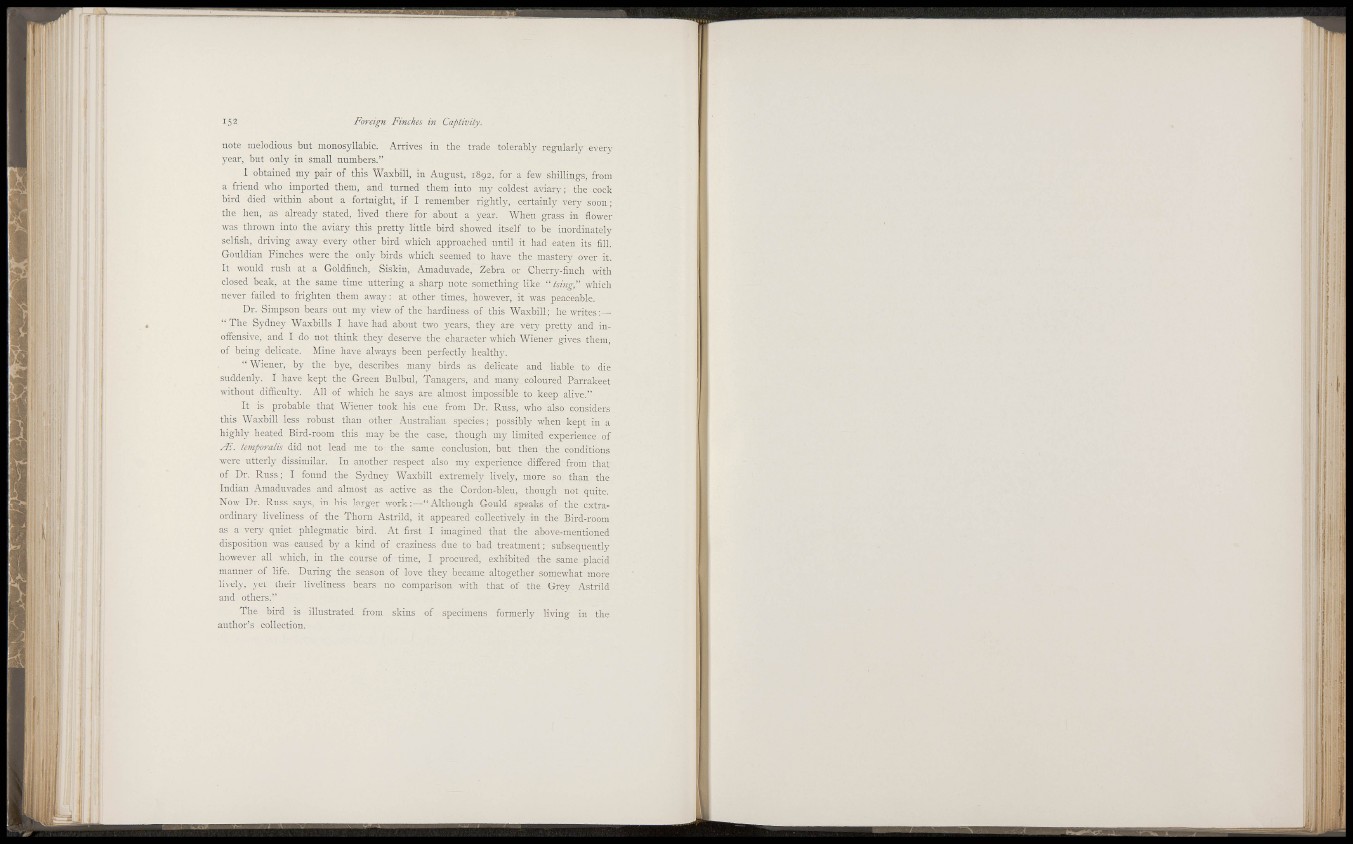
" t,ili.r|!í I'
; , .J.¡l.:: . i
iM^ üllt' ; I
I. J 'I i ' •
MIríJ ; Ií 3
153 Foreign Finches in Captivity.
note melodious but monosyllabic. Arrives iu the trade tolerabl}' regularly every
year, but only in small numbers."
I obtained my pair of this Waxbill, in August, 1892, for a few shillings, from
a friend who imported them, and turned them into my coldest aviar}-; the cock
bird died within about a fortnight, if I remember rightly, certainly very soou;
the hen, as already stated, lived there for about a year. When grass in flower
was thrown into the aviar}- this pretty little bird showed itself to be inordinately
selfish, driving away everj- other bird which approached until it had eaten its fill.
Gouldian Finches were the ouly birds which seemed to have the mastery over it.
It would rush at a Goldfinch, Siskin, Amaduvade, Zebra or Cherry-finch with
closed beak, at the same time uttering a sharp note something like " tsing" which
never failed to frighten them away : at other times, however, it was peaceable.
Dr. Simpson bears out m}- view of the hardiness of this Waxbill; he writes: —
" The S3-dney Waxbills I have had about two years, they are very pretty and inoffensive,
and I do not think they deserve the character which Wiener gives them,
of being delicate. Mine have always been perfectlj' healthy.
" Wiener, by the bj'e, describes many birds as delicate and liable to die
suddenly. I have kept the Greeu Bulbul, Tanagers, and many coloured Parrakeet
without difficulty. All of which he says are almost impossible to keep alive."
It is probable that Wiener took his cue from Dr. Russ, who also considers
this Waxbill less robust than other Australian species; possibly when kept in a
highl}- heated Bird-room this may be the case, though m}? limited experience of
.-F. temporalis did not lead me to the same conclusion, but then the conditions
were utterly dissimilar. In another respect also my experience differed from that
of Dr. Russ; I found the Sydney Waxbill extremely lively, more so than the
Indian Amaduvades and almost as active as the Cordou-blen, though not quite.
Now Dr. Russ saj^s, in his larger work:—"Although Gould speaks of the extraordinary
liveliness of the Thorn Astrild, it appeared collectively in the Bird-room
as a very quiet phlegmatic bird. At first I imagined that the above-mentioned
disposition was caused by a kind of craziness due to bad treatment; subsequently
however all which, in the course of time, I procured, exhibited the same placid
manner of life. During the season of love they became altogether somewhat more
lively, yet their liveliness bears no comparison with that of the Grey Astrild
and others."
The bird is illustrated from skins of specimens formerly living in the
author's collection.
f í
•• » 1 -1 ^ I, . , »('l^ r, s^^- • ' i
{¡••••¡•••llM [||d||
I J
" I
i